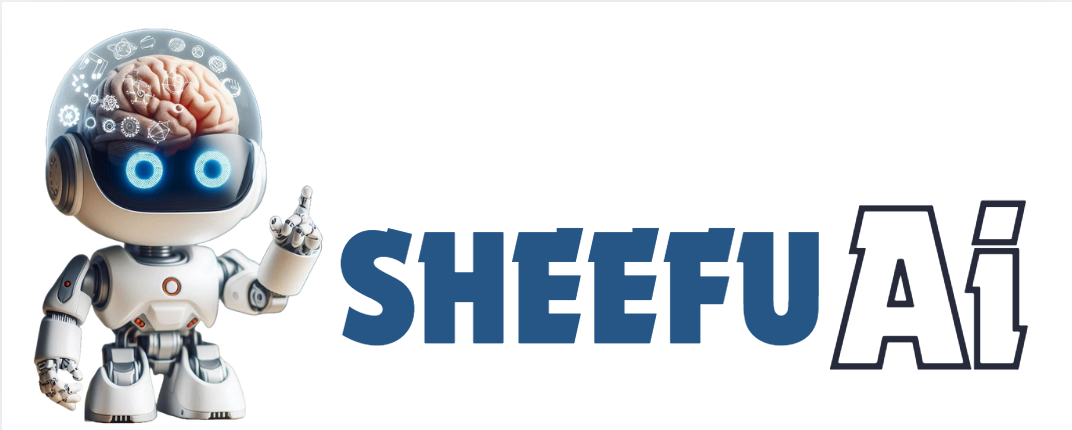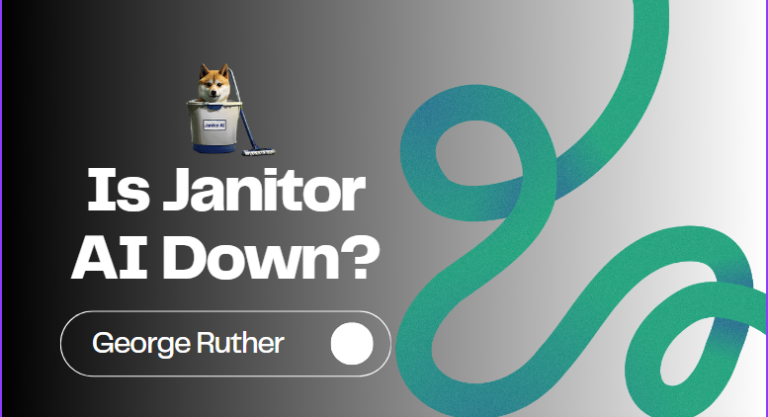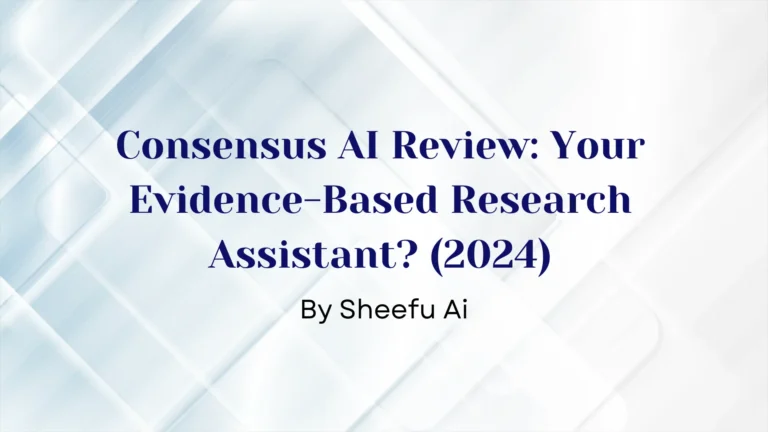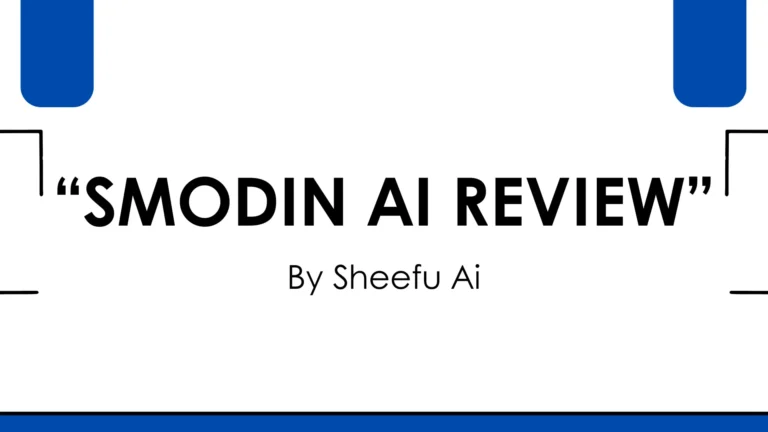AI has already started making a difference in many areas.
But the real challenge?
Many people still aren’t sure how AI can truly help in their everyday lives. Whether it’s at home or work, AI needs to feel helpful, not complicated.
In 2025, AI will become a bigger part of our personal and professional lives, making tasks easier and more efficient. As AI improves, it will help us solve big problems, like better healthcare and smarter environmental decisions.
“AI is already making the impossible feel possible. Over the past year, we’ve seen significant numbers of people and organizations moving from AI experimentation to more meaningful adoption,” says Chris Young (executive vice president of business development, strategy, and ventures at Microsoft). “This is the start of a full-scale transformation of how this technology will change every part of our lives.”
In the past year alone, generative AI usage jumped from 55% to 75% among business leaders and AI decision-makers. New AI tools will bring even more potential to the table, transforming how we work, live, and solve problems.
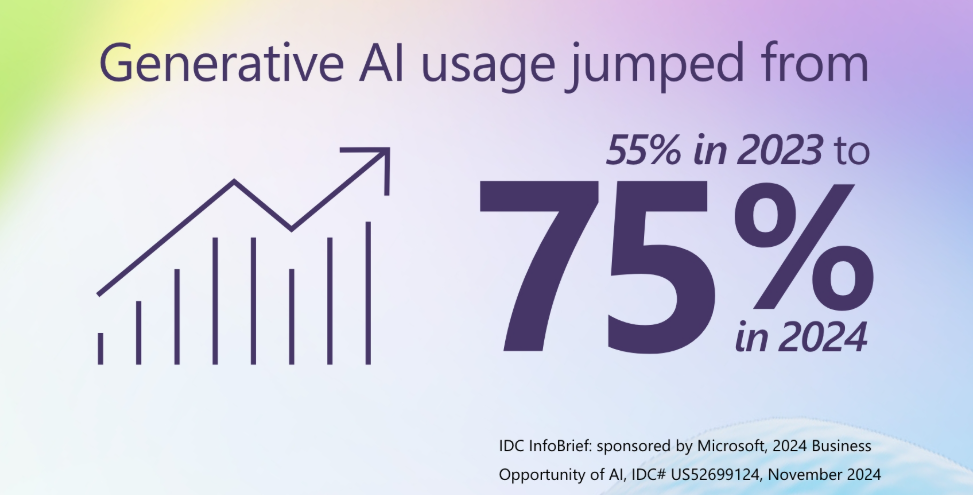
Ai is becoming popular as time passes.
As AI continues to evolve, its ability to remember more, think better, and make decisions faster will only increase. This is just the beginning of a bigger change.
1.AI Models Becoming Smarter
AI models have already started making things easier. But many users still face challenges with finding AI that is both powerful and easy to use. Often, the tools are either too slow or too complicated.
In 2025, AI models will become faster, more efficient, and even more specialized. This means they’ll handle a broader range of tasks more accurately, from writing and coding to complex decision-making in industries like healthcare, law, and finance.
Models like OpenAI’s are already making huge strides by solving problems in a way that feels more human. They can reason through complex questions, step-by-step, much like we would. These improvements will help industries create smarter solutions to difficult problems.
The key to making these models better will be in the data. Curating the right data and using synthetic data to post-train models will make them even smarter and more useful. Microsoft’s small Phi models have shown that carefully selected data can lead to big improvements in performance.
By 2025, expect to see AI models that are faster, better, and more specialized to help you in your work and personal life. Whether it’s solving problems or building new tools, AI will become more capable and accessible.
“By training these models and improving how they work, we can create AI that meets your specific needs,” says Ece Kamar, Managing Director of Microsoft’s AI Frontiers Lab. “Now, people will have the chance to choose or build models that work best for them.”
2.AI Agents Will Change How We Work
Many businesses struggle with time-consuming, repetitive tasks. Whether it’s answering emails, managing meetings, or organizing files, employees often spend hours on things that don’t require their full attention.
In 2025, AI-powered agents will handle these tasks and more, giving you back precious time. Today, tools like Microsoft 365 Copilot help employees automate simple jobs, but in the future, agents will do much more — even taking on entire tasks, like answering customer questions or managing your calendar.
“Think of agents as the apps of the AI era,” says Charles Lamanna, corporate vice president of business and industry Copilot. “Just like we use different apps for specific tasks, AI agents will transform how businesses work.”
With improvements in memory, reasoning, and multimodal capabilities, these agents will take on more complex jobs. From creating reports to handling HR tasks like solving tech problems or answering benefits questions, agents will let employees focus on high-value work.
Businesses will set up multiple agents to help with tasks like inventory management, supplier recommendations, and sales orders. These agents will solve daily problems, helping keep business operations running smoothly.
The good news? You don’t need to be a developer to use or create these agents. Anyone can build an agent with Copilot Studio without needing to know how to code, while developers can create more advanced agents using Azure AI Foundry.
By 2025, businesses will have a range of agents — from simple assistants to fully autonomous agents. These agents will work alone or together to get things done.
But even as AI agents take over more tasks, human oversight will remain critical. Ece Kamar, managing director at Microsoft’s AI Frontiers Lab, says, “In 2025, the focus will be on ensuring agents operate within boundaries and always have human oversight.”
3.AI Companions Will Simplify Your Daily Life
We all know how overwhelming it can be to keep up with endless tasks and information. From emails to schedules, it feels like there’s never enough time to focus on what really matters.
In 2025, AI companions, like Microsoft Copilot, will change that by helping you manage your day. These AI tools will prioritize your tasks and organize your information, giving you back time to focus on what’s important.
And the best part? It will protect your privacy, data, and security while doing so.
Copilot will keep you more connected as it evolves.
For example, Copilot Daily will start your day with a quick summary of news and weather — all in a voice you’re familiar with.
If you choose to use Copilot Vision, the AI will see what you’re looking at online and understand the webpage. It will talk with you about what you see, answer your questions, and suggest your next steps.
Copilot will also help you make everyday decisions. For instance, if you’re setting up your new apartment, Copilot will suggest furniture that fits your style and space. It will even help you arrange everything for the perfect flow, like feng shui.
There are many AI tools in the market which simplify the work, save time, and give best results. They start from Writing to making images, face swaps, singing and solving real life problems.
This is just the start. As time goes on, AI companions will become more accurate and develop better emotional intelligence for smoother, more natural interactions.
4.AI Will Use Less Energy in the Future
As AI continues to grow, one of the biggest challenges we face is how to manage the energy it consumes. But AI doesn’t have to be a huge drain on resources. We know many people worry about the environmental impact of AI.
In 2025, we’ll see AI become more resource-efficient. Companies like Microsoft are already working to improve hardware so that AI systems use less power and work more efficiently. For example, custom silicon, like Azure Maia and Cobalt, and liquid cooling systems are being developed to help cool large AI systems without using much energy.
New AI-supporting datacenters will be designed to be more sustainable. These datacenters will use zero water for cooling and will expand the use of cold plates — a more efficient cooling technology.
These steps are part of a bigger goal to make AI systems not only more efficient but also more sustainable by 2025. Companies will focus on using low-carbon materials, like near-zero carbon steel, concrete alternatives, and even cross-laminated timber for building their infrastructure.
AI models’ power consumption is rising, contributing to higher carbon emissions, with Meta’s Llama 3.1 emitting an estimated 8,930 tonnes of CO2. This highlights the need for carbon-free power sources like nuclear energy in AI data centers.
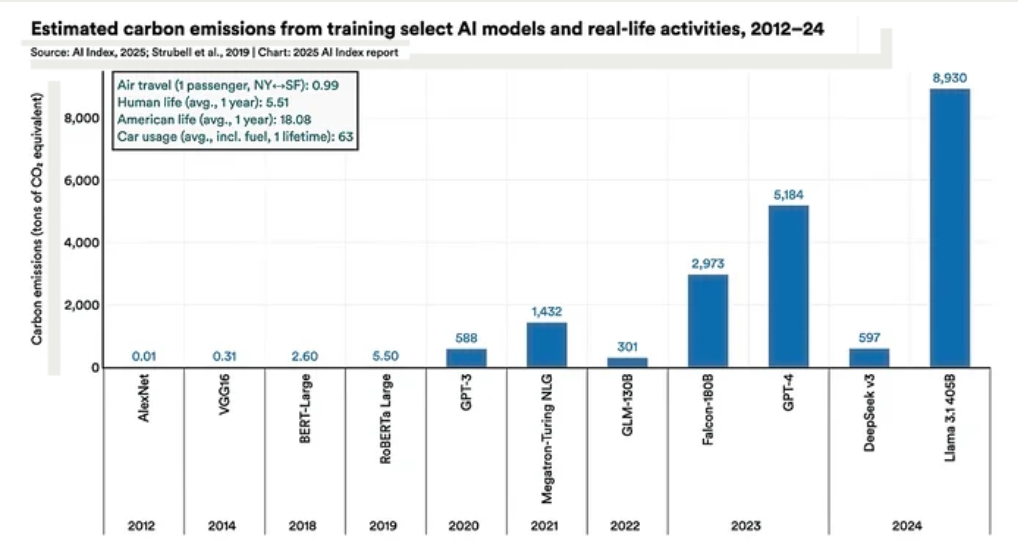
And it doesn’t stop there. AI companies will keep moving toward using carbon-free energy sources, such as wind, solar, and geothermal. This will reduce their environmental footprint and help create a cleaner future.
By working together to improve energy efficiency and sustainability, we can ensure that AI grows in a way that’s good for the planet.
5.AI Needs Safe and Customizable Solutions
AI systems can sometimes make mistakes, and this can be frustrating for users. One of the biggest problems is that AI can give incorrect answers or hallucinations, making it hard to trust.
In 2025, AI safety will be more important than ever. Measuring and testing AI systems for risks will help solve these problems. Testing will improve, allowing us to identify and fix issues like incorrect responses, but also more serious external attacks.
Just like AI systems can be tested for safety, customization will be a key part of making AI work better for your needs. Businesses will be able to control how AI operates, such as setting limits on what types of content employees can access.
For example, a company making games will be able to prevent its staff from seeing violent content while working on projects.
We will also see tools that allow users to customize how AI systems behave in their own organizations. This will help protect workers and ensure the AI fits their specific tasks and responsibilities.
As AI systems evolve, we will continue to test and measure risks, making sure the technology remains safe and reliable for everyone. Customization will allow businesses to adapt AI to their specific needs, giving them better control over the tools they use.
6.AI Will Speed Up Scientific Discoveries
Many people wonder how AI can truly impact the world of science. While AI has already made big advances in areas like weather forecasting and computing, it’s also helping scientists make breakthroughs in ways we never thought possible.
In 2025, we will see AI continue to change the way researchers work. For example, Microsoft Research has already used AI to simulate protein dynamics, allowing scientists to study biomolecular problems more quickly and accurately. This new method, called AI2BMD, could help scientists discover life-saving drugs and solve complex problems in fields like drug design and enzyme engineering.
The future of AI in science is exciting. AI will continue to help scientists and researchers tackle some of the world’s most difficult challenges. Whether it’s finding sustainable materials or speeding up the development of new medicines, AI will be at the forefront of these efforts.
“AI will play a key role in helping people solve big problems and drive innovation,” says Ashley Llorens, corporate vice president at Microsoft Research. In 2025, AI will open up even more possibilities for scientific progress, benefiting people and organizations around the world.
Summary of the Article
AI is transforming various aspects of our lives, both professionally and personally. It has already begun making a significant impact, from simplifying tasks to solving complex problems. But as we move towards 2025, AI will become an even bigger part of our lives, making everyday activities easier, more efficient, and smarter.
- Smarter AI Models: AI models will become faster, more efficient, and more specialized, handling complex tasks across industries like healthcare, law, and finance.
- AI Agents: AI-powered agents will take over repetitive tasks, such as managing meetings and answering customer queries, freeing up time for employees to focus on high-value work.
- AI Companions: Tools like Microsoft Copilot will act as personal assistants, helping manage your day and assisting in decisions, from setting up your home to managing your schedule.
- Sustainability in AI: AI systems will become more resource-efficient by 2025, using less power and focusing on sustainability, with companies adopting carbon-free energy and more efficient data centers.
- AI Customization and Safety: As AI continues to grow, businesses will have more control over AI’s functionality, customizing how it operates, while testing and measuring risks will ensure that AI remains safe and reliable.
- Scientific Breakthroughs: AI will speed up scientific research, from drug discovery to solving complex biomolecular problems, opening up new opportunities for scientific progress.
As AI continues to evolve, it will help us address major challenges, improve efficiency, and open new possibilities in various fields. The future of AI is bright, and by 2025, its impact will be felt across every part of our lives.
If you are more curious about learning AI then, check out our further articles.
